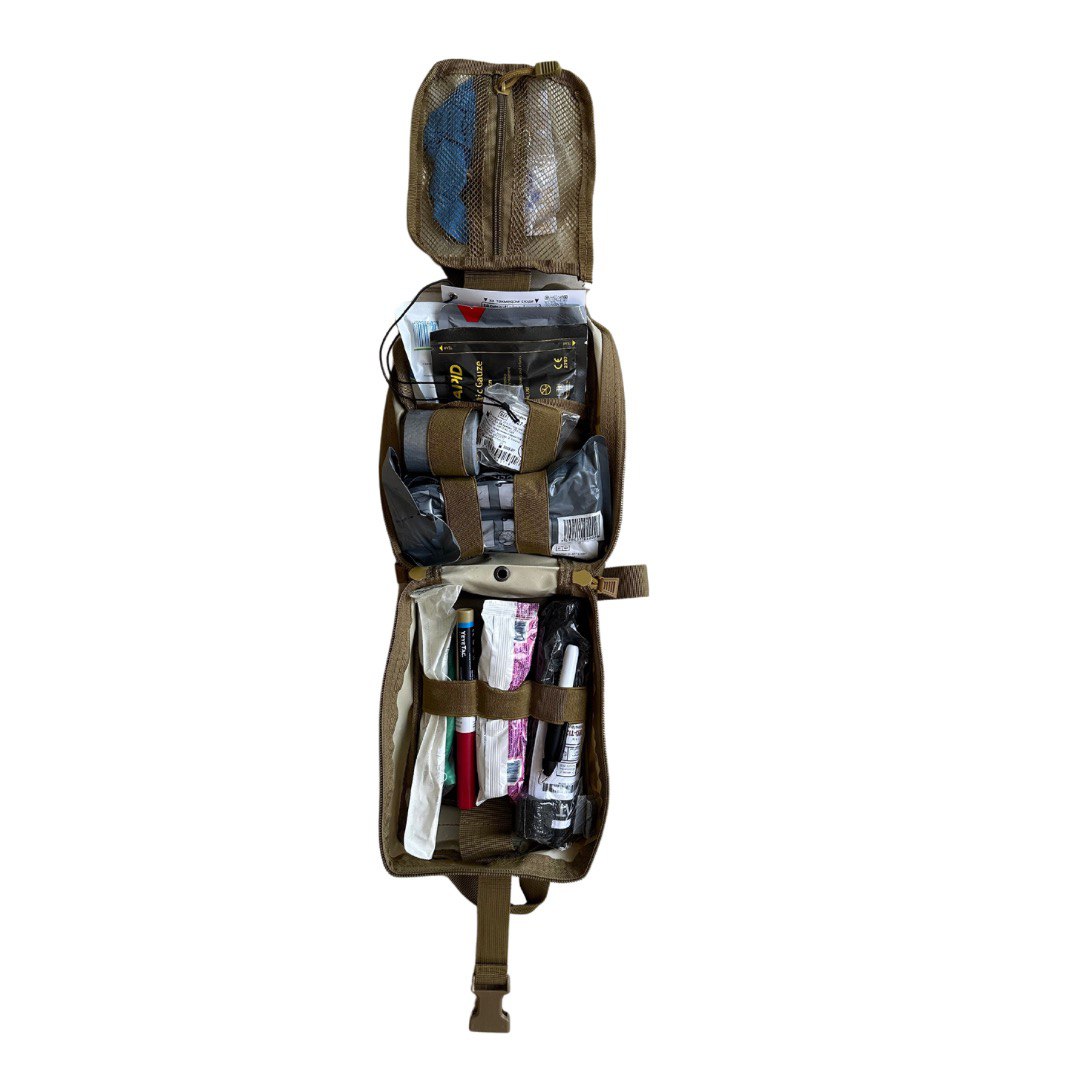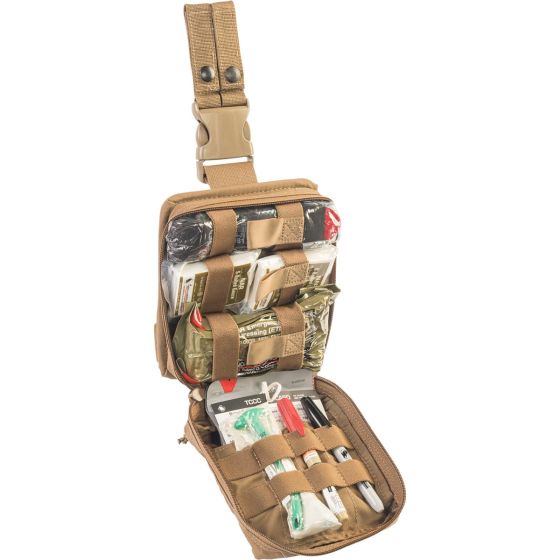What is combat stress: consequences and algorithm of counteraction
Content
- The concept of combat stress
- Factors of combat stress
- Signs of combat stress
- Physical manifestations of combat stress
- Emotional manifestations of combat stress
- Psychological consequences of combat stress
- Help with combat stress
- ICOVER protocol
- How to cope with combat stress on your own
- How to help a comrade during combat stress
- Professional advice on preventing combat stress
- How to recover from combat stress
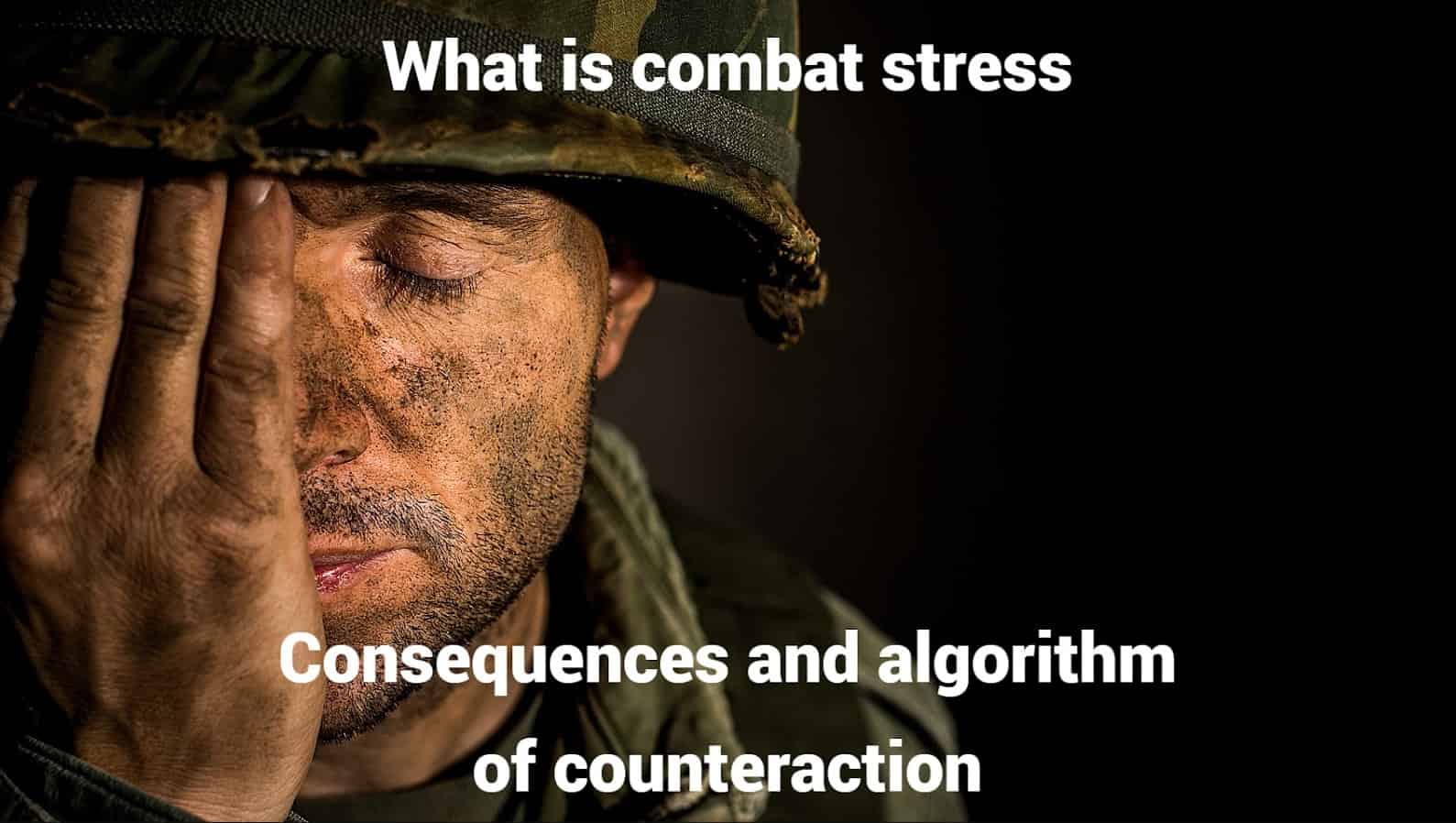
Combat stress is a natural reaction of the body to the threat to life faced by military personnel during combat operations. It can have serious consequences for mental and physical health.
In this article, we will look at the main causes of combat stress, ways to overcome it, and effective prevention methods. Understanding this phenomenon will help you not only to cope with your own emotional reactions, but also to support those who find themselves in a similar situation.
The concept of combat stress
Combat stress is a natural psychological reaction of military personnel to extreme situations and war trauma. It occurs during combat operations and is the body's normal response to abnormal circumstances. Over time, a person develops adaptation to stressful conditions, but the more serious the threat, the slower this process is.
It is worth noting that any situation that causes deep emotional distress, even if it does not pose a direct threat to life, can become traumatic. Not only the fact of danger itself plays an important role, but also the way a person perceives it: the more fear and helplessness they feel, the higher the likelihood of trauma.
Combat stress can manifest itself even before a direct encounter with the enemy, as soldiers face new and unusual factors for the psyche: explosions, injuries, and the death of their comrades. In the first battle, 50% to 75% of soldiers become ineffective or partially incapacitated due to stress, and 25% experience active physiological reactions, including limb tremors, digestive and urinary system disorders.
Factors of combat stress
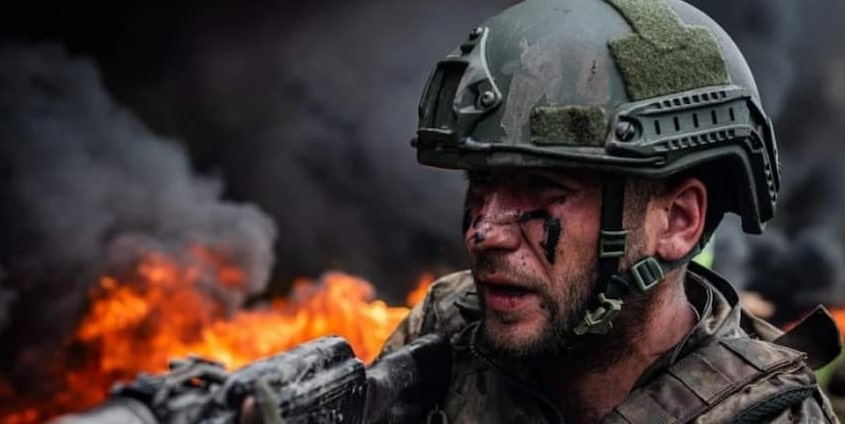
Combat operations are always accompanied by extreme conditions that affect the psyche of military personnel. Constant danger, physical and emotional exhaustion, and the brutal realities of war can be a powerful trigger for the development of combat stress. This condition is a natural reaction of the body to a threat to life, but its consequences can be critical if timely action is not taken.
The main factors that trigger combat stress include:
- sudden explosions, gunshots and other loud noises;
- witnessing the injury or death of colleagues, ill-treatment of prisoners or civilians;
- physical exhaustion due to harsh conditions of service;
- lack of sleep for a long period of time;
- constant threat to life, uncertainty and expectation of danger;
- being in an aggressive and unstable environment;
- long separation from family and lack of emotional support.
The main danger of combat stress is that it can significantly reduce the ability of a soldier to act effectively in critical situations.
If negative factors affect a person for a long time and they do not receive the necessary support, stress can develop into more serious psychological disorders, such as combat fatigue or post-traumatic stress disorder (PTSD).
That is why timely recognition of the symptoms of combat stress and the provision of psychological assistance are key to maintaining the health of the military and supporting their combat capability.
Signs of combat stress
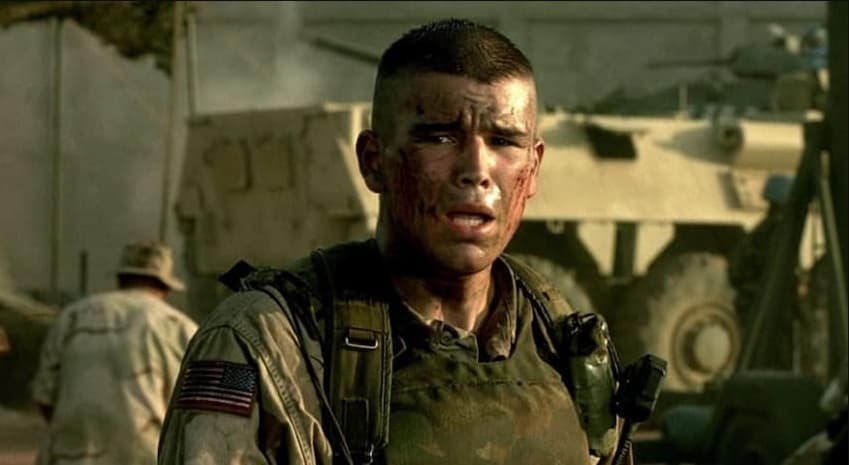
Combat stress can manifest itself in different ways, depending on the intensity of the events experienced, the individual's personality traits and the duration of exposure to stressors.
Recognising the symptoms of combat stress is extremely important, as timely intervention can help prevent more serious consequences. In this section, we will look at the key signs of combat stress that can be manifested in the military during or after combat operations.
Physical manifestations of combat stress
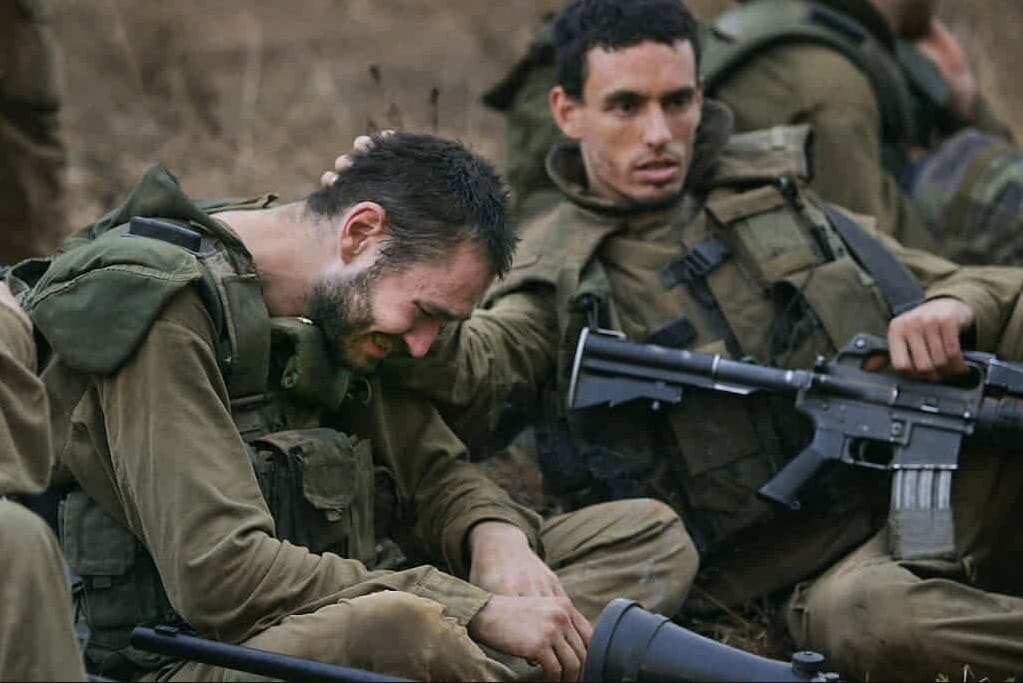
Combat stress affects not only the psychological state of a soldier, but also causes pronounced physical reactions in the body. A person may experience severe muscle tension, accompanied by pain or general stiffness.
Victims often demonstrate increased nervousness: they flinch at any sudden sound or movement, become fidgety, and experience tremors in their limbs.
Typical physiological reactions also include dizziness, heart palpitations, dry mouth, disorientation and difficulty focusing. The soldier may turn pale, feel tingling or numbness in the limbs, and have problems with the digestive and urinary systems. Sometimes, the body reacts to stress by impaired motor activity: a person starts to stagger, panic, run in a dangerous direction, or, conversely, freezes in place, losing the ability to move.
One of the most common consequences of combat stress is sleep disturbance. A person may wake up frequently at night, have disturbing nightmares, and experience chronic sleep deprivation. This leads to a decrease in energy levels, constant exhaustion and a general loss of strength.
Such physical symptoms significantly reduce the combat capability of the military and can pose a danger not only to themselves but also to their colleagues. That is why timely recognition of these signs is an important step in providing the necessary assistance and preventing serious consequences.
Emotional manifestations of combat stress
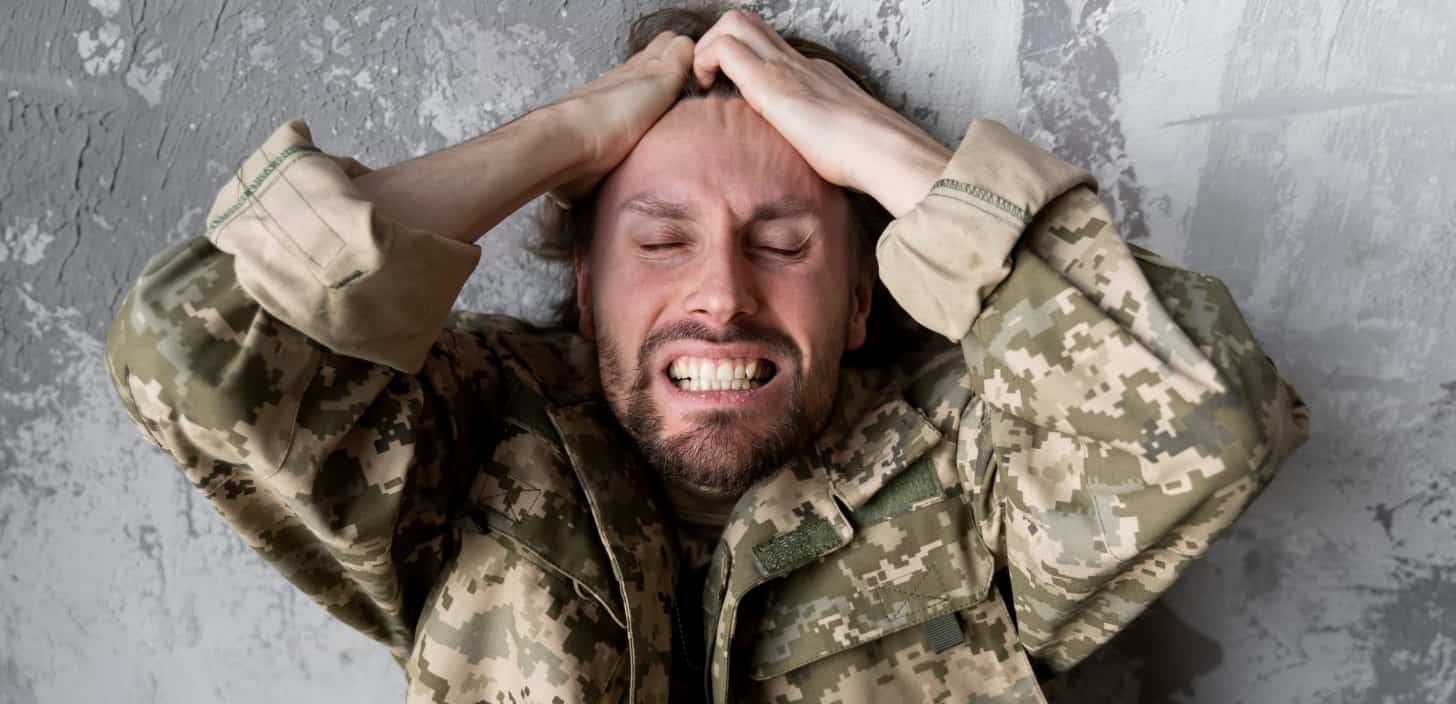
Combat stress affects not only the physical condition of a soldier, but also significantly changes his or her emotional perception of reality. Soldiers experiencing a stress reaction can show significant changes in behaviour, emotions and communication. These manifestations can occur both during combat operations and after returning from the combat zone, in civilian life.
A person experiencing combat stress often feels constantly anxious and tense. They may be overly agitated, irritated, perceive everything in a negative light and experience mood swings.
Aggression, a sense of betrayal by the command or fellow soldiers, unreasonable outbursts of anger or emotional exhaustion are typical reactions. In many cases, a person experiences a strong sense of guilt for actions or decisions taken in combat, especially if they have lost comrades.
Impaired memory and attention, absent-mindedness, difficulty concentrating and remembering details can make it very difficult to perform duties and daily tasks.
Some servicemen and women may have inadequate perception of reality, incoherent communication, stuttering or mumbling. In extreme cases, hallucinations are observed - a person hears or sees things that do not actually exist.
There is often a tendency towards social isolation: the soldier withdraws from friends and family, avoids conversations, and ignores common traditions or rituals. In some cases, he becomes completely apathetic, indifferent to everything that happens around him, or, on the contrary, behaves unnaturally cheerful, as if denying reality.
One of the important consequences of combat stress is changes in the perception of time, space and danger. A person may overestimate or underestimate threats, misjudge distances or sizes of objects. His or her reactions may be too sharp or, on the contrary, inhibited.
Although many of the manifestations of combat stress are similar to normal chronic stress or other mental disorders, they can have a deeper and more lasting impact. It is important to recognise these emotional changes in time and provide the necessary support to help the service member return to a stable psychological state.
Psychological consequences of combat stress
Combat stress, which occurs as a result of military experiences, can have serious consequences for the mental health of military personnel. It is not only temporary difficulties with emotional state, but also profound changes that affect the quality of life, social interactions and overall psychological well-being.
One of the most common consequences is post-traumatic stress disorder (PTSD). It manifests itself in the form of intrusive memories, nightmares, increased anxiety and emotional instability. A person may experience intense fear or anger even in the absence of a real threat, and any reminder of combat events causes an acute psycho-emotional reaction.
Depression and anxiety disorders are also common consequences of combat stress. Servicemen and women may lose interest in life, withdraw into themselves, and have difficulty communicating with their families and colleagues. In some cases, they resort to substance abuse as a way of avoiding painful memories.
Combat stress can also cause serious mental disorders, such as bipolar disorder, schizophrenia or psychosis. Although stress itself is not the root cause of these illnesses, it can activate them in people who are predisposed to them. In the most severe cases, the psychological effects can lead to suicidal thoughts or even suicide attempts.
In addition to personal experiences, combat stress also affects relationships with others. Soldiers often become emotionally detached, which makes it difficult to interact with family and friends. Secondary traumatisation also threatens psychologists, chaplains, doctors and volunteers who work with the victims.
No less important are the psychosomatic consequences of combat stress. It can cause diseases of the cardiovascular and nervous systems, digestive disorders, hormonal disorders and sleep problems.
Despite the serious consequences, combat stress does not always lead to psychological or physical disorders. Timely support, access to psychological help and the use of effective rehabilitation methods can significantly reduce its destructive impact and help soldiers adapt to civilian life.
Help with combat stress
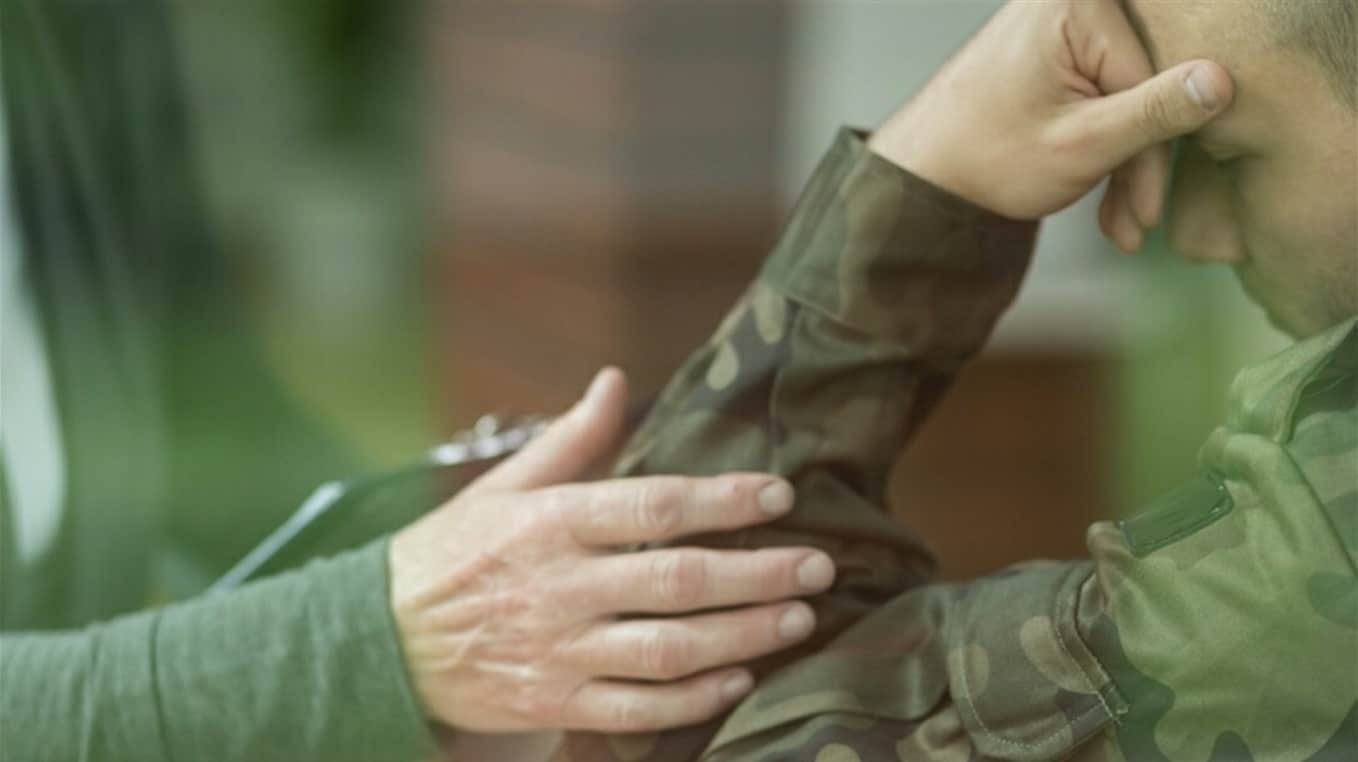
Combat stress is a serious test for the psyche of military personnel, and its consequences can last long after the end of hostilities. Timely assistance plays a key role in restoring psychological balance and maintaining the military's combat capability.
Support for combat stress includes both immediate methods of stabilising the condition during or immediately after a stressful event and long-term psychological rehabilitation. It is important to be able to recognise the symptoms of stress in order to provide the necessary assistance to yourself and your colleagues in a timely manner. In this section, we will look at the main approaches to overcoming combat stress and support methods that help military personnel return to normal life.
ICOVER protocol
The ICOVER protocol is an effective method of quickly bringing a serviceman out of combat stress. It is used by colleagues or combat medics directly in the combat zone to help a person regain control over themselves and the situation.
The protocol consists of six key stages:
- Identification (I) - It is important to determine that the soldier is in a stressful reaction and not in another state, for example, under the influence of alcohol or due to an epileptic seizure.
- Contact (C) - You need to turn to your colleague firmly but without aggression, make eye contact, squeeze his hand and ask him to do the same. This helps to focus their attention on you and stabilise their condition.
- Promise of support (O) - It is important to reassure the victim that they are not alone in the situation. They need to be reassured that there are people who can help them and that they are safe.
- Verification (V) - To test the ability to navigate reality, you should ask simple questions about facts: the name of the commander, the name of the platoon, who is next to them in the position, how much ammunition is available. This helps to regain control of the situation.
- Event sequence (E) - It is necessary to briefly explain what happened, what is happening now and what needs to be done next. This allows the soldier not to get lost in the chaos of the combat situation and to better navigate reality.
- Implementation of actions (R) - The victim should be given a clear and understandable task that he or she can perform immediately: stand up, move equipment, take control of a certain point, or simply take a deep breath. This refocuses attention and restores the ability to act.
The ICOVER protocol is a quick and effective way to stabilise a soldier's condition. Its timely application helps to save lives, maintain the unit's combat capability and minimise the long-term effects of combat stress.
How to cope with combat stress on your own
In a combat zone, the ability to cope with stress is an important factor in maintaining combat capability and successfully completing tasks. Controlling one's emotional state helps soldiers not only withstand psychological pressure but also maintain the overall effectiveness of the unit.
One of the key aspects of coping with stress is self-knowledge. Understanding your own emotions and reactions allows you to better control your behaviour and adapt to difficult circumstances. It is important to be honest with yourself, to acknowledge your fears and feelings without trying to ignore or suppress them.
Physical activity is equally important. Regular exercise, even in the field, helps to reduce stress, improve mood and distract from negative thoughts. Even short workouts, running or simple warm-ups can significantly ease your emotional state.
Relaxation techniques are an effective way to overcome combat stress. Deep breathing, meditation, or even focusing on your own feelings for a few minutes can help stabilise the psyche and reduce anxiety.
An important source of support is communication with fellow soldiers. Discussing your experiences with comrades who are in the same situation promotes mutual understanding and helps you find solutions in difficult situations.
One of the most effective methods of self-regulation is creativity. Keeping a diary, drawing, playing musical instruments or simply writing down your thoughts can be a way to release emotions and reduce psychological stress.
Another important element is to follow a work/rest schedule. Although it is not always possible in combat conditions, you should try to create a stable schedule, including short rest breaks and quality sleep, which helps the body to recover.
If none of the methods work, you should not ignore the problem - it is important to seek help in time. Consultation with a military psychologist or psychiatrist can be a crucial step towards restoring mental balance and maintaining combat readiness.
How to help a comrade during combat stress
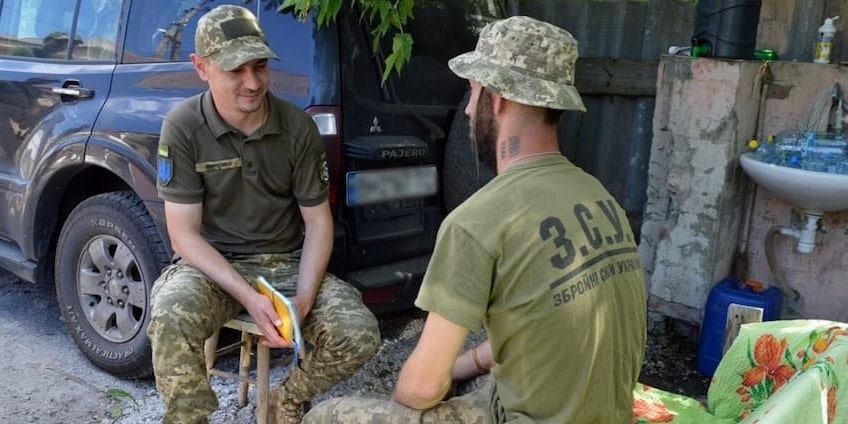
Helping a fellow soldier experiencing combat stress is an important task that can significantly affect his psychological state and combat capability. Timely support helps to stabilise the emotional background, regain control of the situation and avoid long-term negative consequences.
The first step is to show compassion and understanding. Begin communication with sincere support, letting the person know that their experiences are a natural reaction to abnormal circumstances. Encourage your fellow soldier to openly express their feelings, but do not force them to speak if they do not want to.
Listen carefully. Give your friend a chance to speak without interrupting or judging what they say. Sometimes it is enough to just be there and let the person talk - this already helps to reduce the level of tension.
Do not pressure the victim or force them to say more than they are willing to share. Respect their personal boundaries and give them space for self-determination. It is important to remain patient, as everyone reacts to stress in their own way.
Suggest activities together that will help distract from the stressful state. It can be a conversation on neutral topics, a joint lunch, a short walk or any simple task. Even simple actions can help you regain a sense of control over yourself and the situation.
Be prepared to provide long-term support, because combat stress does not always go away immediately. Some symptoms can take a long time to manifest themselves, so it is important to maintain trust and confidentiality of everything that is told to you.
If your friend feels the need for more professional help, you should encourage him or her to see a psychologist or psychiatrist. Professional support can greatly facilitate the process of adaptation and help to quickly restore psychological balance.
In addition to psychological support, physical safety during hostilities should be kept in mind. Make sure you have quality haemostatic products in your first aid kit, including certified tourniquets and bandages that meet modern standards. They can save lives on the battlefield, just like timely moral support.
Professional advice on preventing combat stress
It is impossible to completely prevent the onset of combat stress, as it is the body's natural reaction to danger. However, there are methods that can help reduce its impact and increase the psychological resilience of servicemen. Understanding the mechanisms of stress, working on your own emotional state and supporting your comrades in the unit play a key role in preventing its negative consequences.
One of the most important aspects is to realise that combat stress is a normal reaction. You should not ignore your emotions, but you should not allow them to completely take over your behaviour. Seeking counselling from a psychologist or commander can be helpful in stabilising your condition.
Regular physical activity can help reduce stress levels. Even short exercises contribute to the release of endorphins, the so-called ‘happy hormones’ that help fight stress and anxiety.
Relaxation techniques such as deep breathing or short meditations are equally important. They help calm the nervous system, reduce anxiety and improve concentration.
Social support also plays a critical role. Communicating with fellow soldiers, discussing difficult situations, and upholding unit traditions help reduce stress and boost morale.
Maintaining a healthy lifestyle - eating right, getting enough sleep and avoiding alcohol and drugs - are important factors in resilience to combat stress.
In addition to general methods, there are several professional tips to help prevent the negative effects of combat stress:
- Perfect knowledge of their duties and strict adherence to military instructions.
- Developing critical thinking and calm analysis of events around you.
- Performing stress-resistance exercises, including breathing control and body relaxation.
- Active communication with comrades, maintaining team spirit.
- Avoiding gossip and creating a healthy communication atmosphere in the unit.
- Maintaining personal hygiene and order at the position.
- Drinking enough water and avoiding dehydration.
- Organising sleep in combat conditions, striving to sleep at least 7-8 hours whenever possible.
- Concentrate on performing combat tasks to avoid unnecessary negative thoughts.
- Discussing difficult situations with commanders, chaplains or psychologists.
- Observing the emotional state of comrades and helping them, especially those who have just arrived in the unit.
Awareness that combat stress can be controlled and is not a sign of weakness.
It is difficult to avoid combat stress in war, but knowledge of its mechanisms and the use of effective methods of adaptation can significantly reduce its negative impact. Competent support from commanders and comrades-in-arms will help to avoid psychogenic losses and maintain the psychological stability of servicemen.
How to recover from combat stress
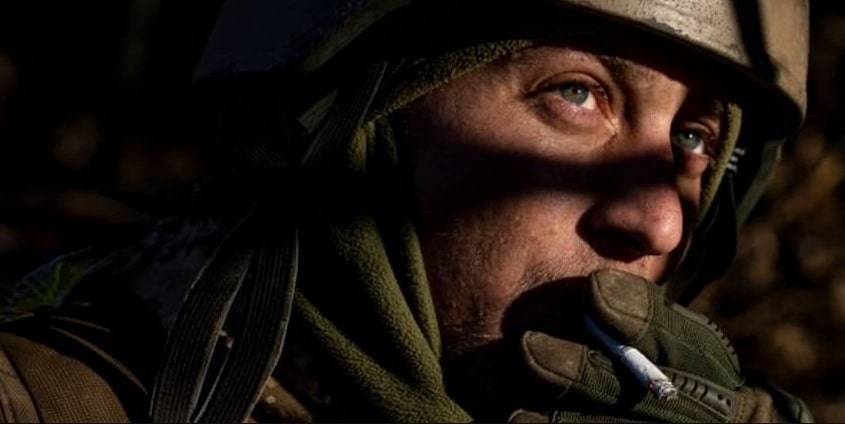
The process of recovery from combat stress is individual and can last from several days to several weeks. The duration and complexity of rehabilitation depends on the level of stress experienced, the general physical and mental state of the person, and whether the provoking factors continue to operate.
For a successful recovery, it is important to give yourself time and not to demand an immediate return to your normal rhythm of life. The body and mind need a period of adaptation, during which you should pay attention to your physical health, emotional state and maintaining social connections.
Regular sleep, good nutrition and physical activity are key factors that help stabilise the nervous system. It is important not to ignore the symptoms of emotional exhaustion, but to look for ways to overcome them: communication with loved ones, enjoyable activities, or work with a psychologist.
If stress symptoms persist or become more pronounced, you should seek professional help. Psychologists and psychotherapists will help you find effective methods of recovery and adaptation to peaceful life.
